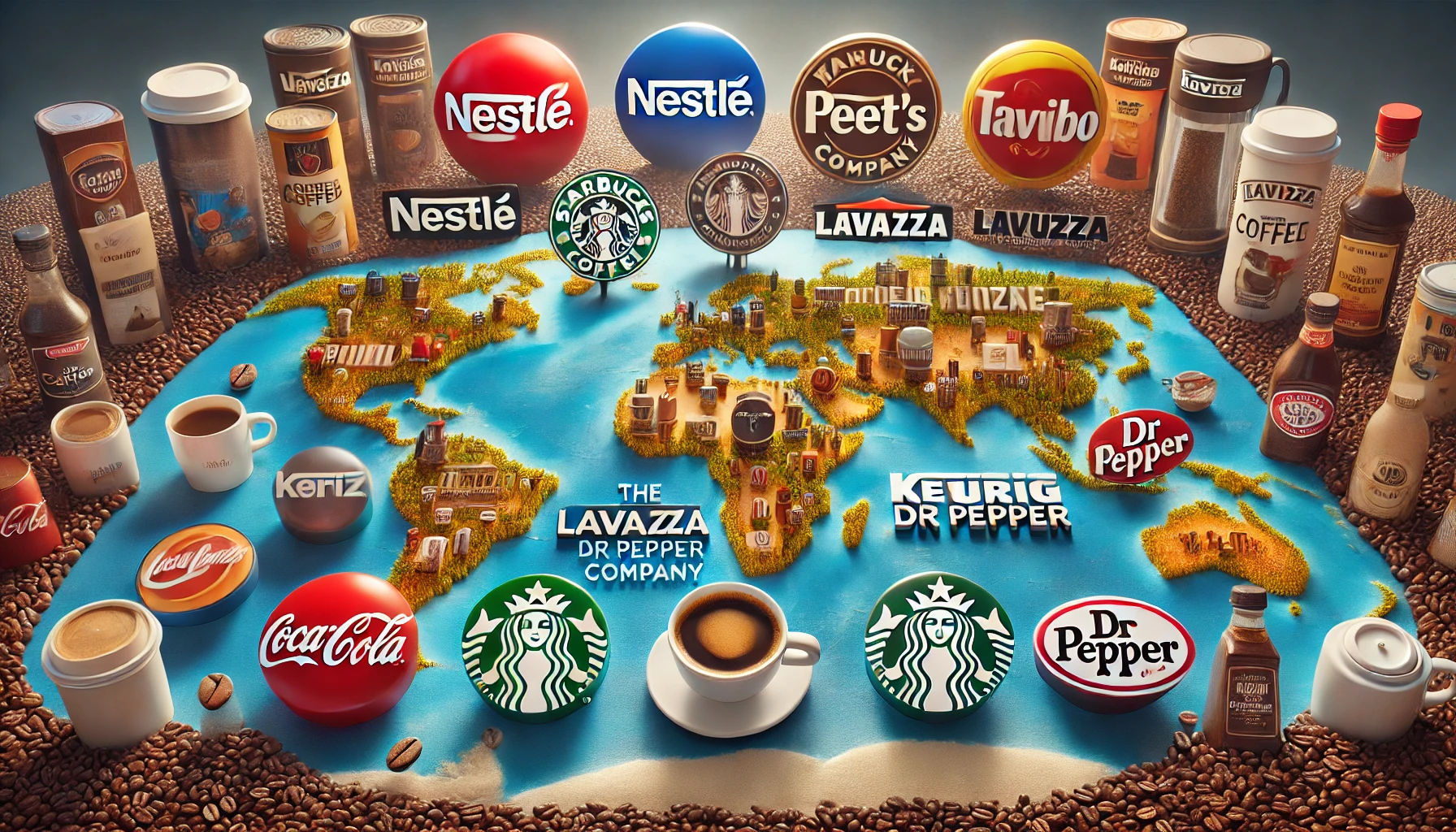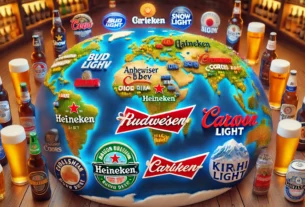The global coffee industry is dominated by several major companies that have established themselves through innovative products, strategic marketing, and expansive distribution networks. This report highlights the largest coffee companies in the world, detailing their key brands, market strategies, and global influence.
1. Nestlé
Overview
Nestlé, a Swiss multinational, is a leading player in the global coffee market with a broad portfolio of coffee brands.
Key Brands
- Nescafé
- Nespresso
- Starbucks (licensed products)
- Blue Bottle Coffee
Market Strategy
Nestlé’s strategy includes product innovation, premiumization, and expanding its presence in the specialty coffee market. The company leverages its global distribution network and strong brand recognition to maintain market dominance.
2. JDE Peet’s
Overview
JDE Peet’s, a merger between Jacobs Douwe Egberts and Peet’s Coffee, is a major force in the coffee industry, headquartered in the Netherlands.
Key Brands
- Jacobs
- Douwe Egberts
- Peet’s Coffee
- L’OR
Market Strategy
JDE Peet’s focuses on a diverse product range, including premium and specialty coffee, and strong presence in both retail and out-of-home channels. The company invests in sustainability and innovation to meet evolving consumer preferences.
3. Starbucks Corporation
Overview
Starbucks, an American multinational, is the largest coffeehouse chain in the world, known for its high-quality coffee and unique customer experience.
Key Brands
- Starbucks
Market Strategy
Starbucks’ strategy revolves around brand experience, store expansion, and product diversification. The company focuses on creating a premium experience, introducing new product lines, and expanding into emerging markets.
4. The Kraft Heinz Company
Overview
The Kraft Heinz Company, an American food and beverage giant, has a significant presence in the coffee market through its well-known brands.
Key Brands
- Maxwell House
- Gevalia
- Tassimo
Market Strategy
Kraft Heinz emphasizes strong brand heritage, competitive pricing, and convenience. The company leverages its extensive distribution network to maintain a robust presence in the global coffee market.
5. Lavazza Group
Overview
Lavazza, an Italian coffee company, is known for its premium coffee products and strong focus on quality and tradition.
Key Brands
- Lavazza
- Carte Noire
- Merrild
Market Strategy
Lavazza’s strategy includes premium positioning, investment in sustainable practices, and expanding its international footprint. The company focuses on high-quality coffee and innovative product offerings to attract discerning consumers.
6. Tchibo
Overview
Tchibo, a German company, is one of the largest coffee roasters in the world, known for its unique retail model combining coffee and non-food items.
Key Brands
- Tchibo
- Davidoff Café
Market Strategy
Tchibo’s strategy includes a unique retail concept, strong brand loyalty, and a focus on high-quality coffee. The company leverages its innovative retail approach to differentiate itself in the competitive coffee market.
7. Keurig Dr Pepper
Overview
Keurig Dr Pepper, an American beverage company, has a significant presence in the coffee market through its Keurig single-serve coffee systems.
Key Brands
- Keurig
- Green Mountain Coffee
- Donut Shop
Market Strategy
Keurig Dr Pepper focuses on convenience, innovation, and partnerships with major coffee brands. The company’s single-serve coffee systems cater to consumers seeking convenience and variety in their coffee choices.
8. JM Smucker Company
Overview
The JM Smucker Company, an American food company, has a strong coffee portfolio through its acquisition of several well-known brands.
Key Brands
- Folgers
- Dunkin’ (licensed products)
- Café Bustelo
Market Strategy
The company’s strategy includes leveraging brand heritage, competitive pricing, and expanding its product offerings. The JM Smucker Company focuses on maintaining a strong presence in the retail coffee market.
Conclusion
The largest coffee companies in the world have built their market positions through strong branding, innovative products, and expansive distribution networks. As consumer preferences continue to evolve, these companies are adapting by introducing new products, focusing on sustainability, and expanding their global reach. This ensures their continued leadership and influence in the global coffee industry.



